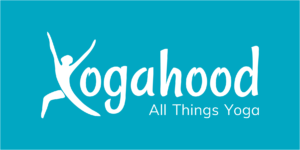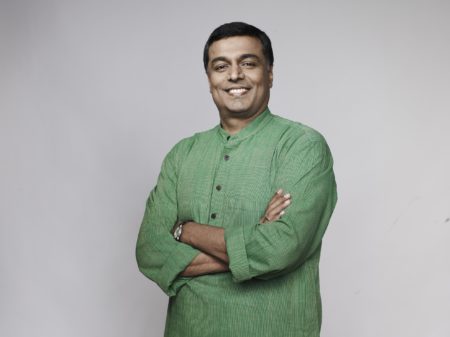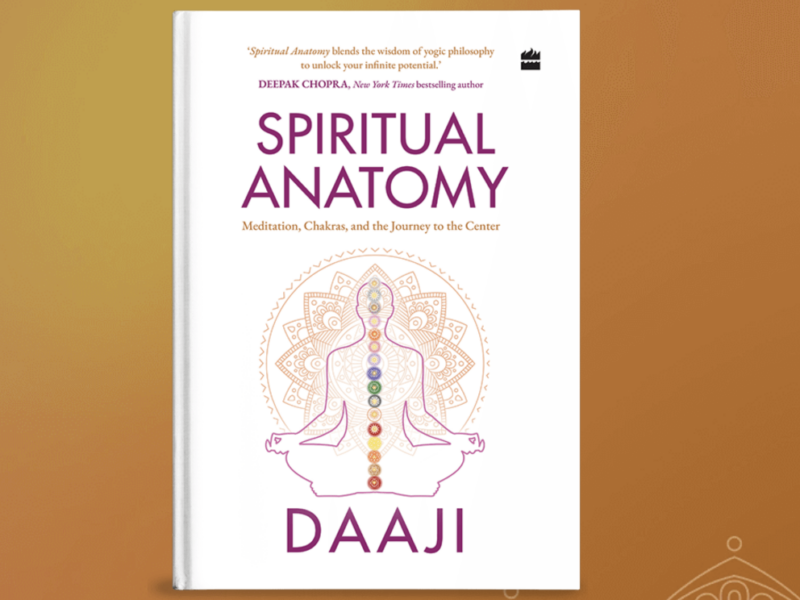A top advertising executive chose a holistic and yogic healing path after his cancer surgery. 15 years later, this ‘cancer thriver’ has not only documented his journey in a book, he is dedicating his life to cancer-coaching and helping others rehabilitate and reframe their life’s goals.

By Vijay Bhat
“I’m going to die” was my first thought on a cold, grey and wintry day in December 2001. I was in London, and the doctor had just calmly announced a diagnosis of colon cancer.
After a successful surgery where my two tumors were removed, my chance of a recurrence was put down in numbers: 28% with chemotherapy, 30% without.
I decided against chemo, and turned to a mind-body-spirit holistic and integrated approach to minimize those chances of a recurrence. That was over 15 years ago. Today, I am still here, cancer-free and (I think) a better person than before. I call myself a ‘cancer-thriver’ rather than a ‘survivor’. Read on and you’ll understand why.
Choosing ‘Life’ over ‘Lifestyle’
What is this ‘holistic and integrated approach’? For starters, I made some fundamental changes to every aspect of my life. My work moved us to Hong Kong from London soon after my cancer surgery. Two years later, I resigned from a full-time thriving international corporate career and relocated to India, along with my family. I changed my diet, exercise and sleep routine significantly. I learned various psycho-spiritual techniques such as neuro-linguistic programming (NLP), the Enneagram, yoga, Vipassana meditation and family constellation therapy.
Gradually, my wife, Nilima, and I took on the role of health coaches—dedicating ourselves to helping corporate leaders and individuals become more self-aware and effective in their professional lives, and in achieving their life goals. However, rehabilitation and recovery from the trauma and suffering of cancer remained my main area of interest and my life’s calling.
My recovery and remission inspired Nilima and I to develop our unique approach to cancer, and we started teaching its application on a one-to-one basis, and also in group settings. We chronicled our journey, approach and case studies in the book ‘My Cancer Is Me: The Journey From Illness To Wholeness’, published by Hay House (a Spanish edition has also been recently published).
In parallel, we created an online media platform (www.cancerawakens.com) to get our message out to the widest possible audience: you can take charge of your own healing!
Cancer is catching up with cardiovascular disease as the leading global cause of death, and I am now leveraging technology to scale up my efforts to provide patients, care-givers and practitioners a range of structured cancer-coaching services.
While the doctors cure the disease, who heals the patient?
I believe limited understanding, endless taboos and collective beliefs block the world from identifying the underlying reasons and trigger-points of cancer, as well as potential methods to heal from it. The conventional medical establishment of cancer may be barking up a single, and perhaps wrong, tree.
Western medicine focuses on the disease and the body part where cancer originates—for example, the breast, colon or lung—it’s thus an ‘organ-centric’ approach. I propose a ‘person-centric’ approach. My experience and work shows that cancer is the result of not only one’s physical stressors, but also mental, emotional and spiritual ones. For example, limiting thoughts and attitudes are ‘mental stressors’, while negative emotions, such as anger and guilt, are ‘emotional stressors’. I strongly believe that accurately identifying and addressing one’s stressors can lead to greater immunity. It is also essential for effective healing.
Looking back, in my case, my stressors or trigger-points were physical (poor diet, sedentary lifestyle and frequent international travel); emotional (tendency towards avarice, melancholy and rage) and psycho-spiritual (lack of a spiritual practice and disconnect with the Divine).
My cancer coaching builds on my life lessons, and focuses on the following three insights:
- Cancer arises from within a person, and not from external or foreign agents, contrary to what people believe.
- Cancer needs a new language. Its common negative connotations—such as ‘monster’, ‘scourge’, ‘internal terrorist’ and ‘death sentence’— drain hope and create despair. A positive vocabulary, by contrast, actually energizes and empowers.
- Cancer is not a ‘bump in the road’. I reframe it as a ‘fork in the road’—it can provide a new direction, towards growth and transformation.
Yoga: The Vehicle, Path or Destination?
I grew up in Mumbai and was introduced to the practice of yoga in my teens. It was mostly physical (Asana) and some breath-work (Pranayama). When I started working, I had very little time for any physical activity. But early in my career, I developed sinusitis, and so took up yoga again; certain regular practices (Kriya) cured me completely.
Thereafter work took me to other parts of India and then Singapore, and my exercise routine comprised some stretching, walking and trekking—but very little yoga. When we moved to London, Nilima had already dived deep into yoga and gained her teaching certification. I would, quite reluctantly, accompany her to the Sunday open class, where I was clearly out of shape and out of depth.
Ironically, after my cancer surgery and my decision against chemotherapy, the first people we consulted were Nilima’s senior yoga teachers in London, who pointed us to a Traditional Chinese Medicine (TCM) practitioner with excellent credentials and a terrific track record with cancer. He opened us up to the world of Holistic & Integrated medicine. When we moved to Hong Kong, I integrated yoga and meditation (Pratyahara and Dhyana) into my life and my work. Without any doubt, I have benefited at every level—physical, emotional, mental, systemic and spiritual.
I have experienced yoga as a ‘vehicle’ through Hatha Yoga, that has provided the physical practice, breathing and relaxation, and as a ‘path’ through Raja Yoga, which focuses on mental concentration, and I have absorbed the sincere devotion of Bhakti Yoga, along with learning the action-as-service of Karma Yoga. However, I have a long way to go, to fully experience Yoga as the ‘destination’, that is, the union with the Divine. All I can say is that as my practice has deepened, I find myself in contact with a deeper, sweeter, richer and wiser part of me. It is a non-cognitive, intimate and nourishing experience. Not to mention, a key factor in my healing.
Vijay Bhat lives in Mumbai with his wife, Nilima, an author and spiritual guide. To read more about him and his work, go to www.cancerawakens.com. You can email him at cancerawakens@gmail.com
Watch Vijay tell his story – https://tinyurl.com/lmxu2dn







